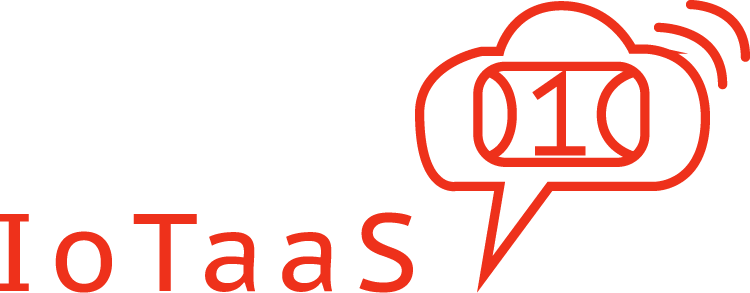Scope
Nowadays, billions of IoT devices, e.g., sensors and RFIDs, arise around us providing not only computing-intensive, but also delay-sensitive services, ranging from augmented/virtual realities to distributed data analysis and artificial intelligence. Unfortunately, in many application scenarios, the low response latency for IoT services is achieved at the cost of computing-complexity that exceeds bz far the capabilities of IoT devices. To feed this trend, multiple computing paradigms emerge, such as mobile transparent computing, edge computing, fog computing, and big data analytics based framework. These paradigms employ more resourceful edge devices, e.g., small-scale servers, smart phones and laptops, to assist the low-end IoT devices. By offloading the computing-intensive tasks to the edge devices, it is expected to converge the data collection at IoT devices and the data processing at edge devices to provision computing-intensive and delay-sensitive services.
However, lots of issues remain in the application of edge computing which impedes its flourishing in IoTs. This workshop will solicit original research and practical contributions which advance the computing offloading and edge intelligence regarding the architecture, technologies, and applications. Surveys and state-of-the-art tutorials are also considered.
The 4th International EAI Workshop on Edge Intelligence and Computing for IoT Communications and Applications workshop aims to bring together active researchers in this field to share their timely and solid works on Edge Intelligence and Computing for IoT Communications and Applications. Through this forum, it is expected to provide a comprehensive overview of this topic and inspire more valuable research orientations.
Topics of interest
Topics include, but are not limited to the following research topics:
- Architecture design for edge computing and intelligence in IoTs
- Data-driven energy consumption and delay model of edge computing in IoTs
- QoS-aware computing offloading in IoTs
- Edge intelligence and computing software design in mobile IoTs
- The management of software in edge intelligence and computing for IoTs
- Communication protocol design for edge intelligence and computing in IoTs
- Convergence of energy harvesting and computing offloading in IoTs
- Security, privacy, integrity, and trust in IoT computing offloading
- Hardware design and prototyping for edge intelligence and computing in IoTs
- Testbeds and simulation platforms for edge intelligence and computing in IoTs
- Big data framework and analytical optimization for edge intelligence and computing in IoTs
- Key scenarios/applications for edge intelligence and computing in IoTs (e.g., connected vehicles)
- Green network design and optimization for IoT
Welcome to the EAI Community
Workshop Organizers
Sheng Zhou is an associate professor in Electronic Engineering Department at Tsinghua University, Beijing, China. He received his B.S. and Ph.D. degrees in Electronic Engineering from Tsinghua University, in 2005 and 2011, respectively. From January to June 2010, he was a visiting student at Wireless System Lab, Electrical Engineering Department, Stanford University. From November 2014 to January 2015, he was a visiting researcher in Central Research Lab of Hitachi Ltd., Japan. His research interests include cross-layer design for multiple antenna systems, cooperative transmission in cellular systems, vehicular networks, edge computing, and green wireless communications.
Lisheng Fan is a Professor of the School of Computer Science at the Guangzhou University, Guangzhou, China. He has co-authored more than 50 technical papers in the areas of wireless networks and mobile systems. His current research interest include the wireless big data, machine learning, mobile
computing and networking.
Han Zhang received the M.E. degree in electronics and communication engineering from the University of Liverpool, U.K., in 2005, and the Ph.D. degree from the School of Information Science Technology, Sun Yat-sen University, China, in 2009. From 2012 to 2013, he was a Senior Research Associate with the Department of Electrical Engineering, City University of Hong Kong, Hong Kong. Since 2009, he has been with the Faculty of Physics and Telecommunication Engineering, at South China Normal University, China,
where he is currently an Associate Professor. His research interests include channel estimation, synchronization, MIMO technology, and cognitive radio.
Publication
All registered papers will be submitted for publishing by Springer and made available through SpringerLink Digital Library.
Proceedings will be submitted for inclusion in leading indexing services, such as Web of Science, Compendex, Scopus, DBLP, EU Digital Library, Google Scholar, IO-Port, MathSciNet, Inspec, and Zentralblatt MATH.
Authors of selected best accepted and presented papers will be invited to submit an extended version to:
- Mobile Networks and Applications (MONET) Journal [IF: 3.077 (2021)]
All accepted authors are eligible to submit an extended version in a fast track of:
- EAI Endorsed Transactions on Scalable Information Systems (Open Access)
- EAI Endorsed Transactions on Internet of Things (Open Access)
Additional publication opportunities:
- EAI Transactions series (Open Access)
- EAI/Springer Innovations in Communications and Computing Book Series
(titles in this series are indexed in Ei Compendex, Web of Science & Scopus)
Paper submission
Papers should be submitted through EAI ‘Confy+‘ system, and have to comply with the Springer format (see Author’s kit section).
- Regular papers should be up to 12-17 pages in length.
- Short papers should be 6-11 pages in length.
Important dates
Workshop Paper deadline: 15 August 5 September 2023
Notification deadline: 25 September 2023
Camera-ready deadline: 10 October 20 October 2023
Conference: 27-29 October 2023

